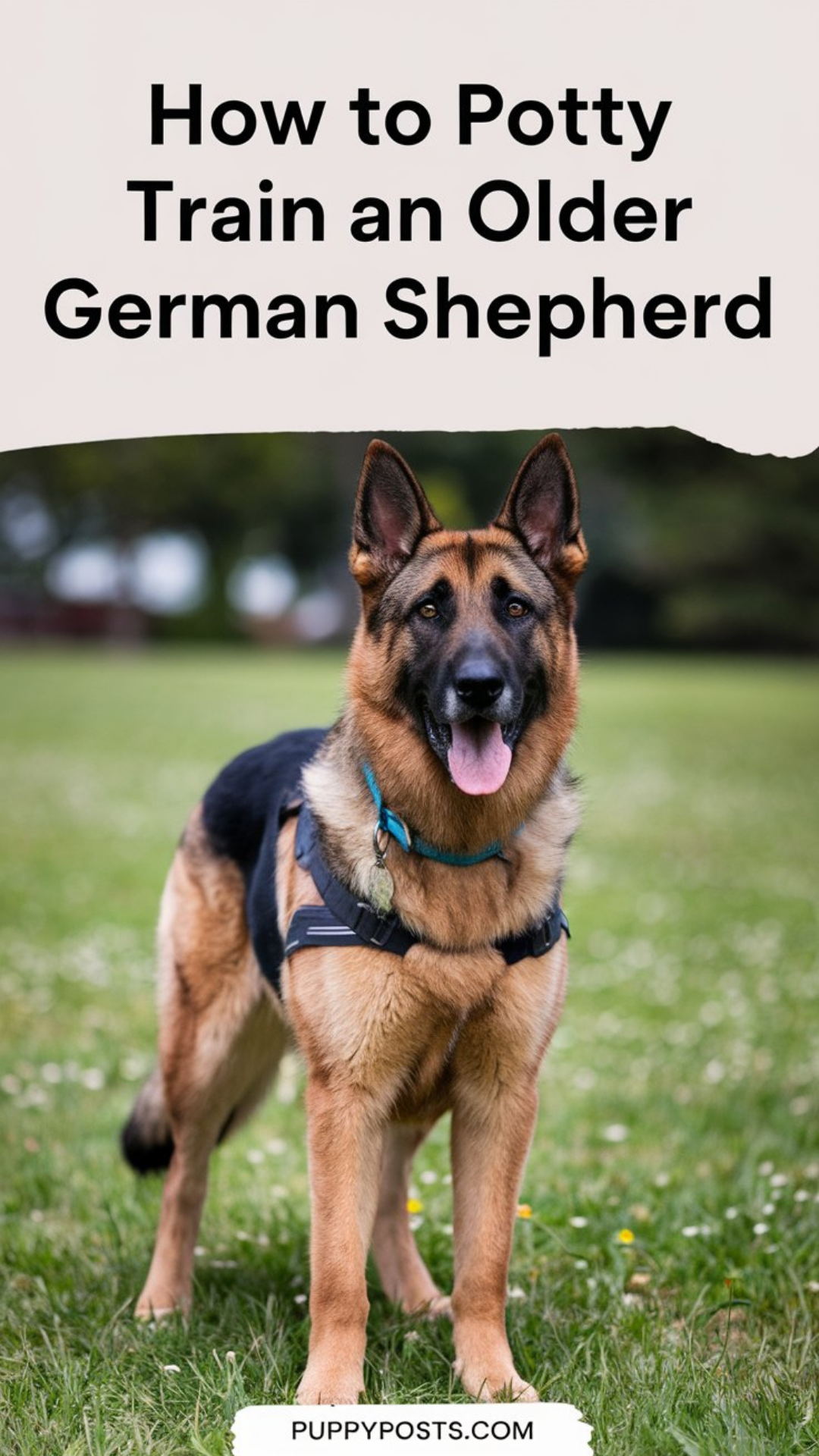How to potty train an older German Shepherd
Listen, potty training a puppy is one thing, but training an older German Shepherd? That takes a different kind of patience and strategy. I’ve been a veterinarian for over ten years, running a sanctuary for stray dogs, and I can tell you—age doesn’t mean you’re out of the game. You just gotta be smart, consistent, and ready to lead. Here’s how you handle potty training for an older German Shepherd the right way.

Assess the Situation First
Before you start, check if there’s a medical issue. Older dogs sometimes have urinary tract infections, bladder problems, or other health conditions that cause accidents. Take your German Shepherd to the vet and get a full checkup. Rule out the health stuff first—training won’t fix a medical problem.
Set a Strict Schedule and Stick To It
Older dogs need routine just as much as puppies, maybe even more. Set regular times to take your German Shepherd outside—first thing in the morning, after meals, after playtime, and before bed. Don’t wait for your dog to “ask” or for accidents to happen. Be proactive and keep your dog on a tight schedule.
Choose a Specific Potty Spot and Use It Every Time
Pick one spot outside and take your German Shepherd there every time. Smell is everything to dogs, and the repeated scent will reinforce where they should go. Keep the dog focused—no wandering or sniffing around other parts of the yard during potty breaks.
Use Clear Commands and Positive Reinforcement
Say a firm command like “Go potty” when you bring your dog to the spot. The command becomes a cue your German Shepherd learns to associate with the act. Reward success immediately with praise or treats. Be clear and consistent—no mixed signals.
Watch and Respond to Signals
Older dogs may be subtle with their signals. Watch for pacing, whining, or sniffing. When you notice signs, get them outside immediately. Don’t delay or assume the dog can “hold it” longer. Older dogs might have weaker bladders.
Use Crate Training Wisely
If your German Shepherd is crate-trained, use the crate as a tool. Dogs generally avoid soiling their sleeping space, so this encourages bladder control. But be mindful—don’t leave your dog in the crate for too long. Regular breaks are key.
Handle Accidents Calmly and Efficiently
If an accident happens, don’t yell or punish. That won’t help and can make your dog anxious or scared. Clean the area thoroughly with enzymatic cleaners to eliminate odors that invite repeat accidents. Stay calm, redirect your dog outside, and keep the routine solid.
Be Patient and Consistent—No Excuses
Potty training an older dog takes time. Don’t get frustrated or give up. Consistency is your best weapon. Your German Shepherd wants to please you, but they need clear leadership. Stay firm, stay calm, and keep pushing forward.
Get Professional Help if Needed
If you’re stuck or your dog keeps having accidents despite your efforts, call in a professional trainer or your vet. Sometimes older dogs have deeper behavioral issues or medical problems that need expert attention.
Potty training an older German Shepherd ain’t easy, but it’s far from impossible. With the right mindset, a solid routine, and a calm but firm hand, you’ll get your dog on track. Remember, your leadership sets the tone—be the boss your dog respects, and you’ll both come out on top.







